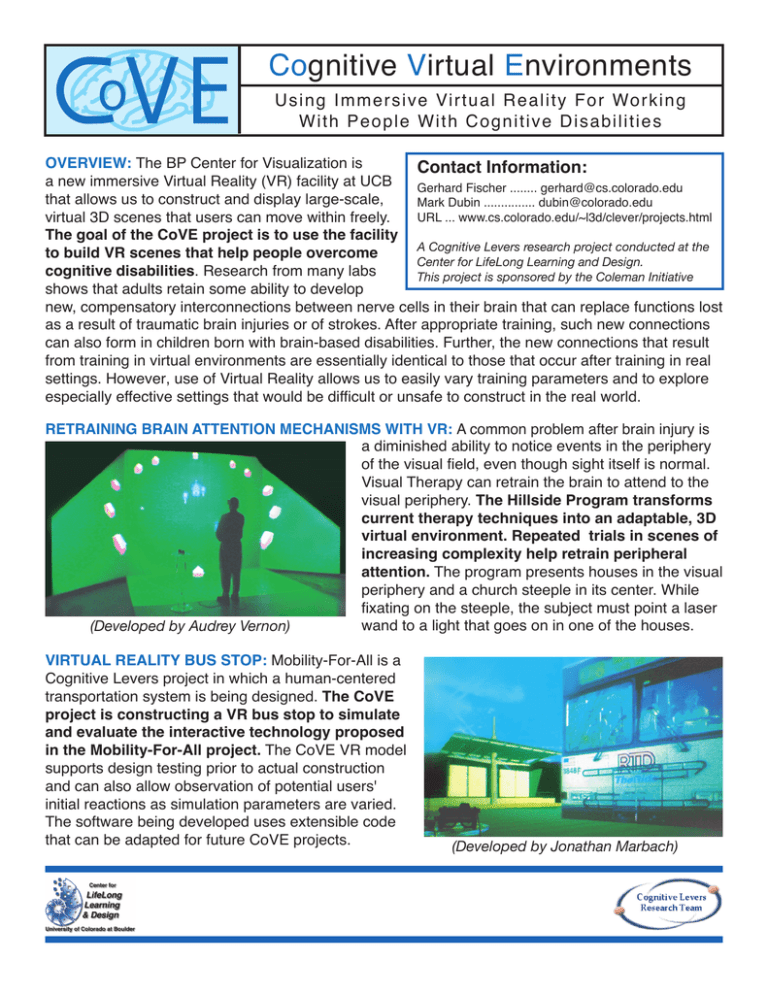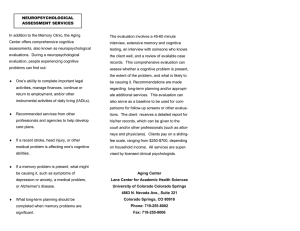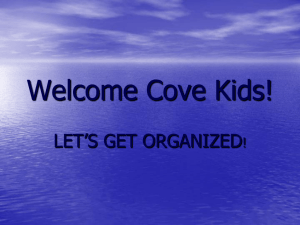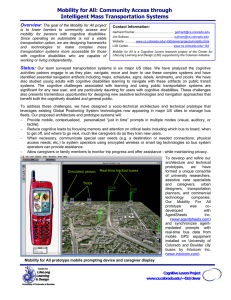VE o Co V
advertisement

VE o Cognitive Virtual Environments Using Immersive Virtual Reality For Working With People With Cognitive Disabilities OVERVIEW: The BP Center for Visualization is Contact Information: a new immersive Virtual Reality (VR) facility at UCB Gerhard Fischer ........ gerhard@cs.colorado.edu that allows us to construct and display large-scale, Mark Dubin ............... dubin@colorado.edu URL ... www.cs.colorado.edu/~l3d/clever/projects.html virtual 3D scenes that users can move within freely. The goal of the CoVE project is to use the facility A Cognitive Levers research project conducted at the to build VR scenes that help people overcome Center for LifeLong Learning and Design. cognitive disabilities. Research from many labs This project is sponsored by the Coleman Initiative shows that adults retain some ability to develop new, compensatory interconnections between nerve cells in their brain that can replace functions lost as a result of traumatic brain injuries or of strokes. After appropriate training, such new connections can also form in children born with brain-based disabilities. Further, the new connections that result from training in virtual environments are essentially identical to those that occur after training in real settings. However, use of Virtual Reality allows us to easily vary training parameters and to explore especially effective settings that would be difficult or unsafe to construct in the real world. RETRAINING BRAIN ATTENTION MECHANISMS WITH VR: A common problem after brain injury is a diminished ability to notice events in the periphery of the visual field, even though sight itself is normal. Visual Therapy can retrain the brain to attend to the visual periphery. The Hillside Program transforms current therapy techniques into an adaptable, 3D virtual environment. Repeated trials in scenes of increasing complexity help retrain peripheral attention. The program presents houses in the visual periphery and a church steeple in its center. While fixating on the steeple, the subject must point a laser wand to a light that goes on in one of the houses. (Developed by Audrey Vernon) VIRTUAL REALITY BUS STOP: Mobility-For-All is a Cognitive Levers project in which a human-centered transportation system is being designed. The CoVE project is constructing a VR bus stop to simulate and evaluate the interactive technology proposed in the Mobility-For-All project. The CoVE VR model supports design testing prior to actual construction and can also allow observation of potential users' initial reactions as simulation parameters are varied. The software being developed uses extensible code that can be adapted for future CoVE projects. (Developed by Jonathan Marbach)






